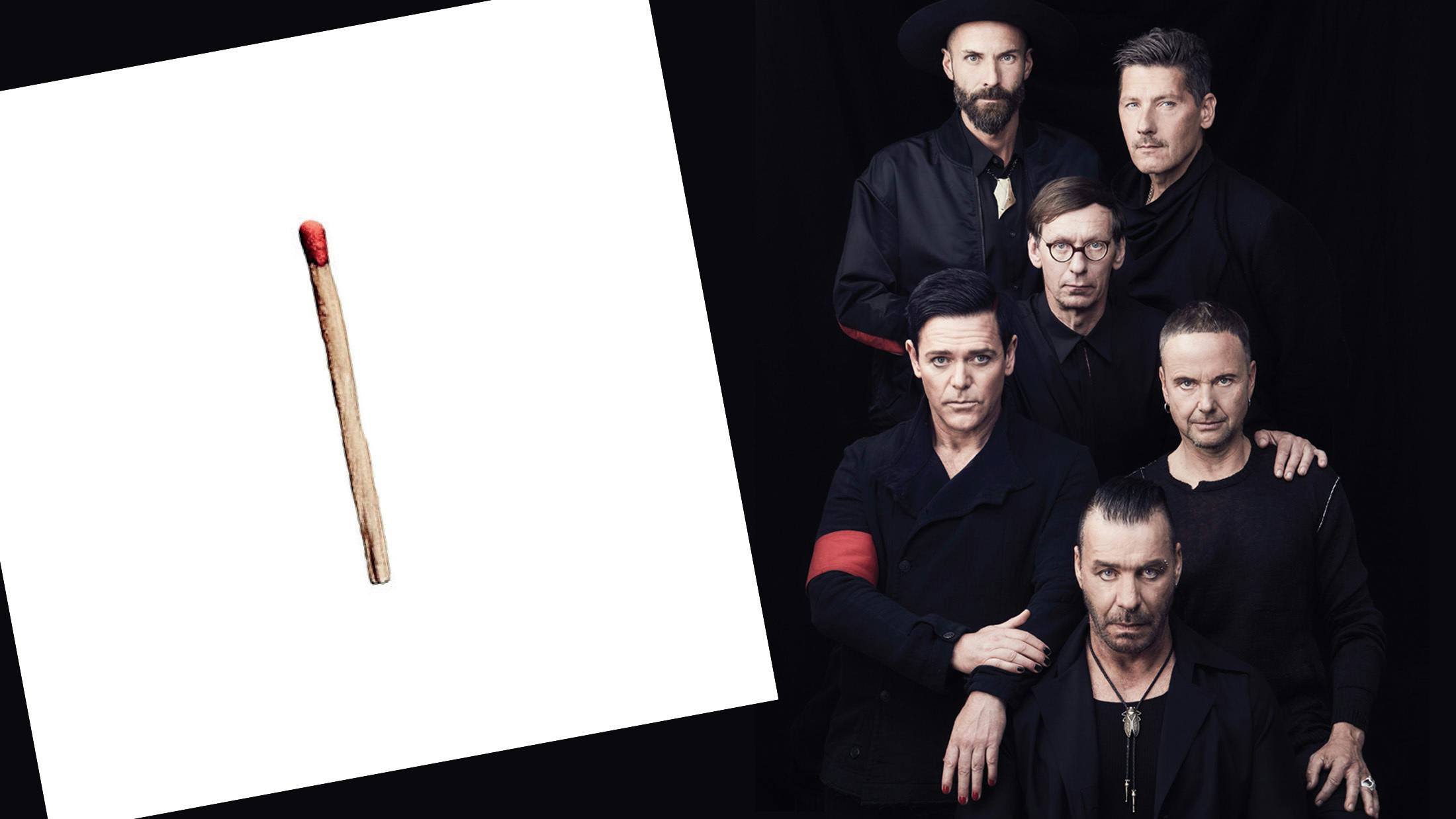A single unlit match rests against a plain white backdrop. Straightforward, striking and utterly inflammatory, it is difficult to conceive an image that more succinctly sums up what makes German metal overlords Rammstein so great.
Beyond its already iconic, economic cover art, however, the Berlin sextet’s magnificent seventh album feels like a heartfelt distillation of their defining qualities: the sex, the subversion, the need to provoke a visceral response. They might not be the type of men to talk too much when nothing needs to be said, but a decade down the line from 2009’s Liebe ist für alle da, this was the relief valve on 10 years of backed-up, boiled-down brilliance.
Fittingly, things began with a tease. Cryptic clips began to appear online indicating that March 28 would mark some sort of return. When the date arrived, they dropped lead-single Deutschland, a towering techno-metal masterpiece complete with an epic Specter Berlin-directed 10-minute video that saw the band traversing Germany’s shifting eras, racked up 20 million views in four days and immediately courted controversy for the apparently disrespectful incorporation of Nazi and concentration camp imagery. In reality, it was a stinging rebuke of fascism and the gentler, more insidious strains of neo-nationalism that plague Europe today. The subversion of discarded national anthem Das Lied Der Deutschen in the lyric ‘Deutschland, Deutschland über allen’ sees them re-cast national pride as a darkness clouding out the many progressive achievements of modern Germany. Ultimately, the song comes across as a darker, closer-to-home counterpart to 2004 hit Amerika, with sharper barbs and more subtle humour.
READ THIS: 12 songs you didn't know were about BDSM
Not that any of this was unpacked by the band themselves. Beyond a short chat with guitarist Richard Z. Kruspe last year, there was very little to go on. “Somehow [we’ve] managed to come together and bring a lot of respect back to the work we do,“ he said. “It almost feels like how we worked together during those early years.” Beyond this, they were satisfied that the music would do the talking. The record wasn’t even granted a name – though its self-evident desire to harness that essence of 25 years of existence supports an alternate reading of this as their self-titled opus.
Accordingly, there are untold depths within, of intimacy and absurdity. Second single Radio is a tribute by frontman Till Lindemann to the airwave-smuggled sounds that opened his mind as a youth in communist East Germany. Ausländer brings us bang up-to-date, casting the singer as an international lothario while keyboardist Christian ‘Flake’ Lorenz layers on the Euro-pop.
